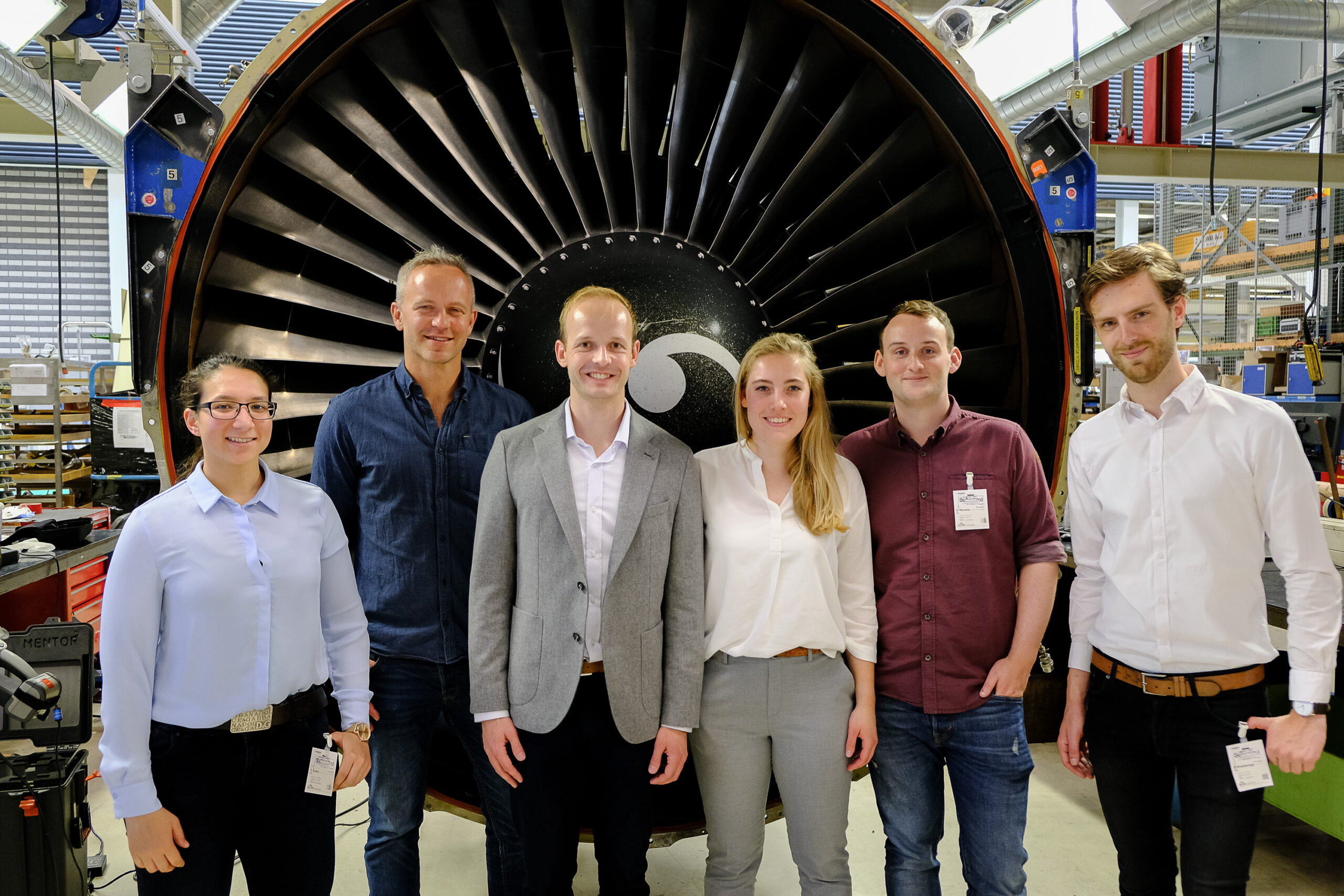Smart software will become available for the inspection of aircraft engines. The Dutch start-up Aiir Innovations has developed a new system for this that uses artificial intelligence. The company announced that it has secured an investment of 500,000 euros from Mainport Innovation Fund II.
Maintaining aircraft engines is largely dependent on manpower. The mechanic inspects each component, records any damage manually and provides a recommendation. Aiir Innovations is developing software that mechanics can use in so-called borescope inspections to detect anomalies, like cracks and dents. “Think of it as an assistant with an extra pair of digital eyes analyzing videos and images at lightning speed,” says co-founder Bart Vredebregt. “And all information is immediately processed into a digital report.”
This way, the software increases the productivity of the inspection, which enables the mechanic to focus on assessing the damage. The software will get a indicating function and is self-learning. This saves a lot of time for maintenance crews. “We can already reduce the full borescope inspection time from 16 hours to about 12 hours. But that’s only the beginning. In four to six years’ time, we expect to be able to perform the inspection in just 20% of the time it currently takes.”
The founders of Aiir Innovations know each other from their time studying Artificial Intelligence (AI) at the University of Amsterdam. As part of a research project, KLM invited them three years ago to come up with artificial intelligence solutions for carrying out borescope inspections.
Aiir says KLM played an important role in the development of the new software. For instance, the Aiir Innovations team was able to work closely with engineers and mechanics on the KLM work floor during the past three years. Earlier this year, KLM Engineering & Maintenance signed a five-year contract. The launching customer also helps the startup with data and connections from their own network.
“Our engineers perceive working with the software as enjoyable,” says Paul Chün, vice president KLM Engine Services. “Thanks to the digital report, they spend less time on administrative tasks. This not only improves the way they record, it also increases job satisfaction.”
Erik Swelheim, managing director and chief financial officer KLM says: “KLM sets the highest possible standards for aircraft maintenance. This software helps to further improve quality and thus contributes to air safety.”
In addition to KLM, Aiir Innovations also has a number of pilots with maintenance parties in Europe. Many more will be launched in the coming years. “We are therefore using the investment of half a million euros to continue our expansion abroad. To achieve this, we need to set up a professional sales organization,” says Vredebregt. The company say sit also wants to use the financing to further improve the product in the coming years, allowing inspections to be carried out even better and faster.
“Another challenge in the coming years will be to obtain the certification we need for the next version of our product. The laws and regulations in aviation are rightly very strict. If we want to use our artificial intelligence on a large scale, we will have to meet all the requirements.”
Mainport Innovation Fund II is an initiative of Schiphol, KLM, TU Delft, NS and the Port of Amsterdam, in collaboration with fund manager NBI Investors. The fund focuses on accelerating innovations in logistics, aviation and transport. “This is a perfect example of how a large corporate like KLM can work together with a startup to enable innovation. In addition, the team consists of five intelligent and very ambitious entrepreneurs who have the potential to turn this into a success. This combination makes this startup a perfect fit for our fund,” says Thijs Gitmans, manager of MIF II.
